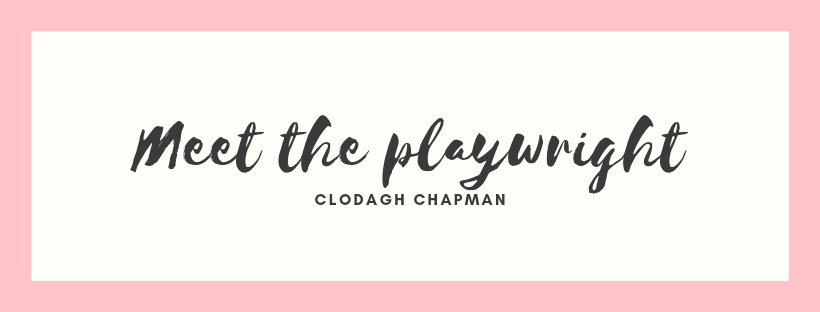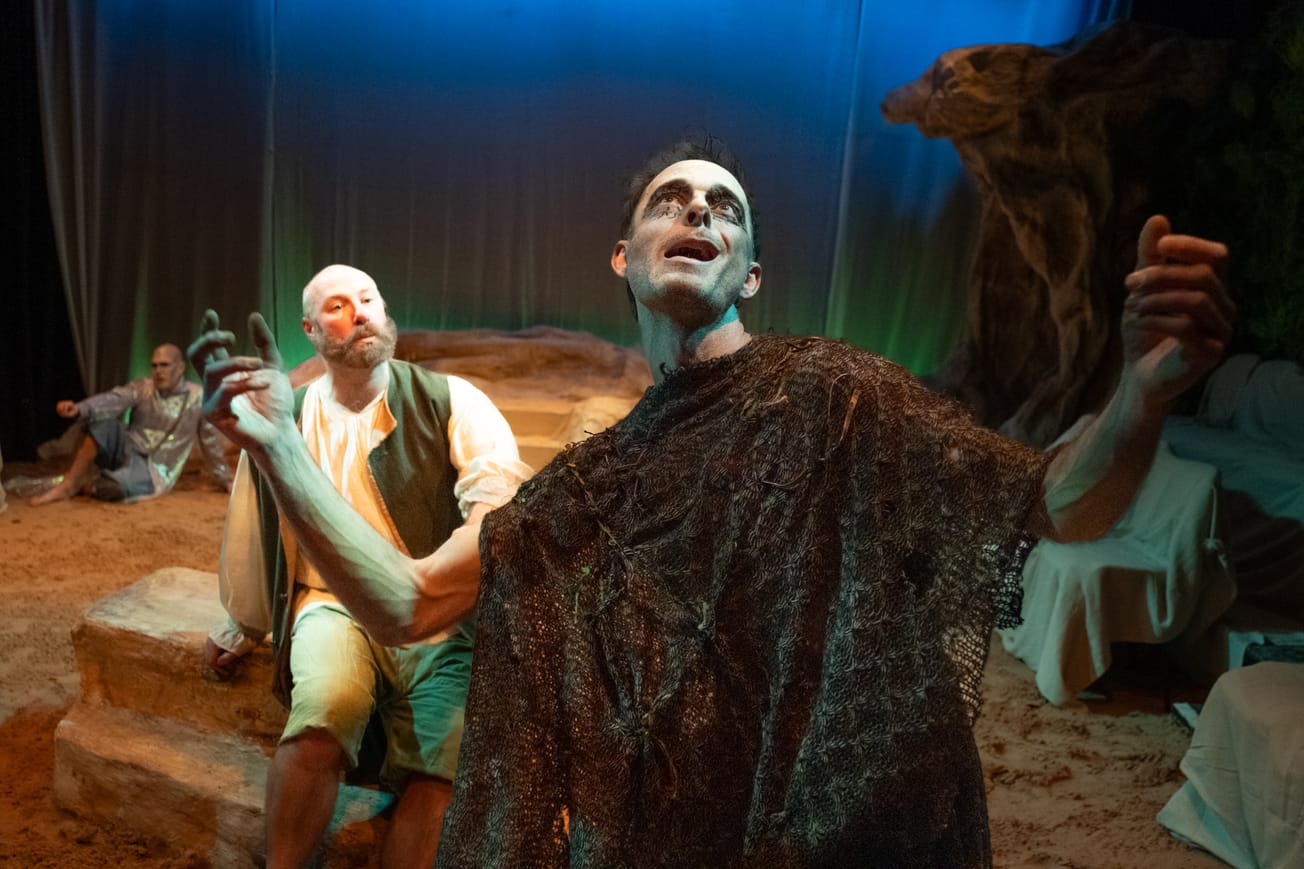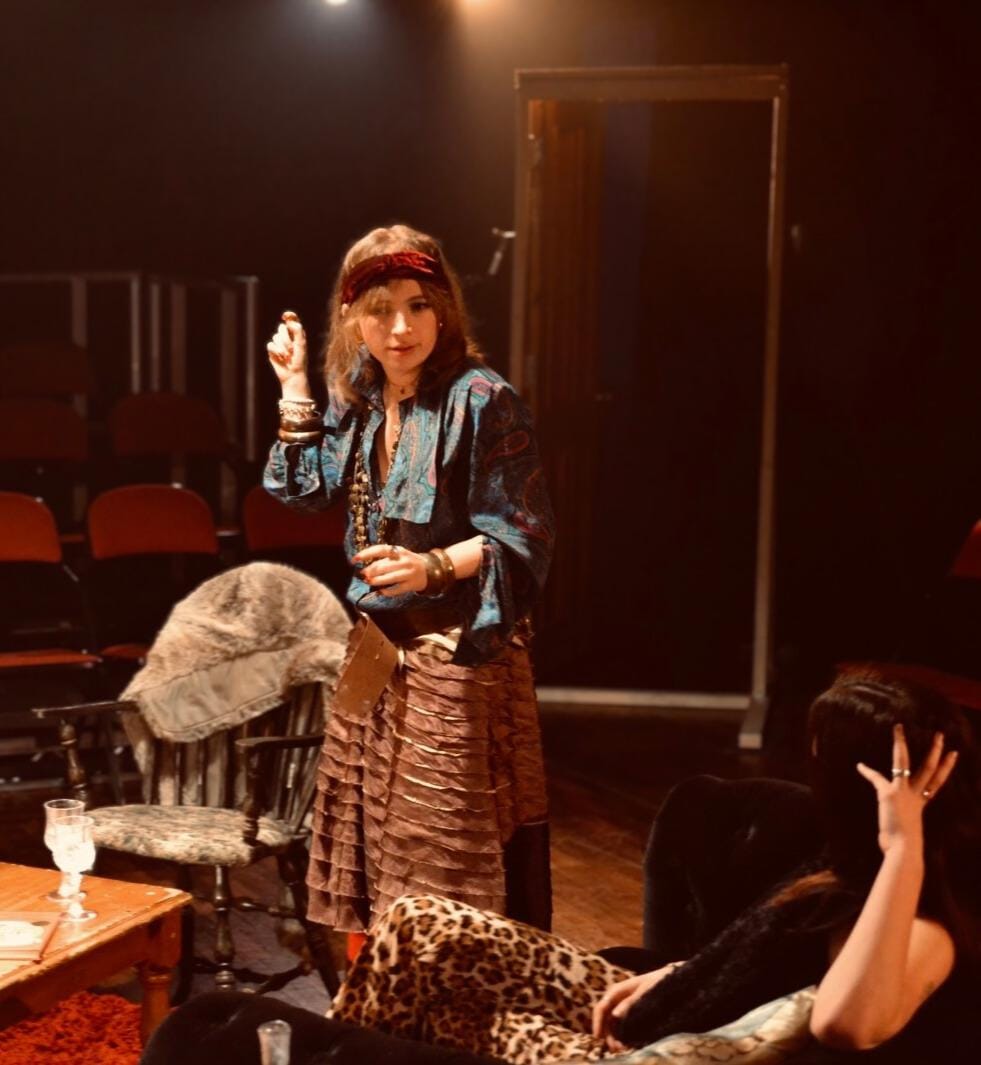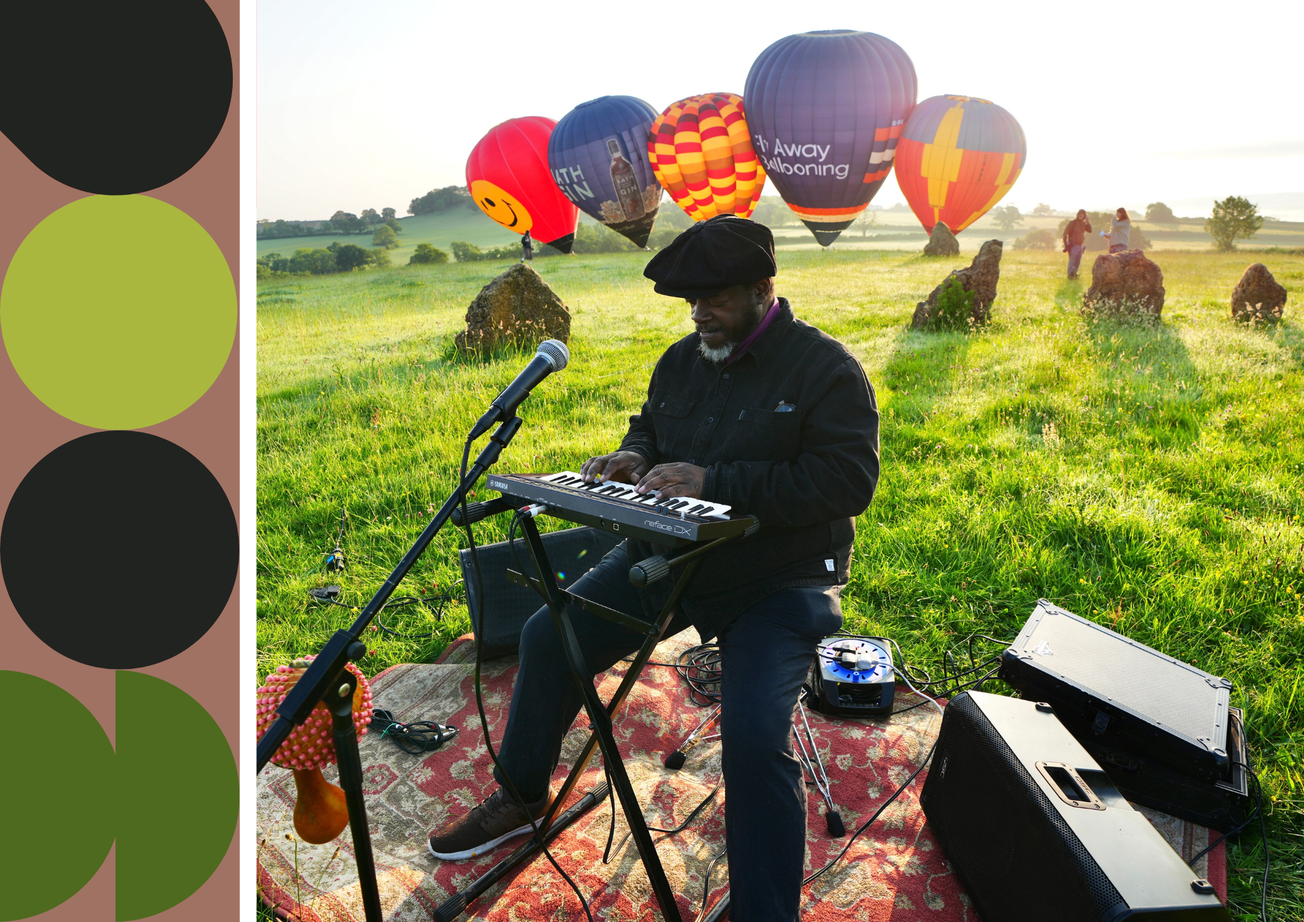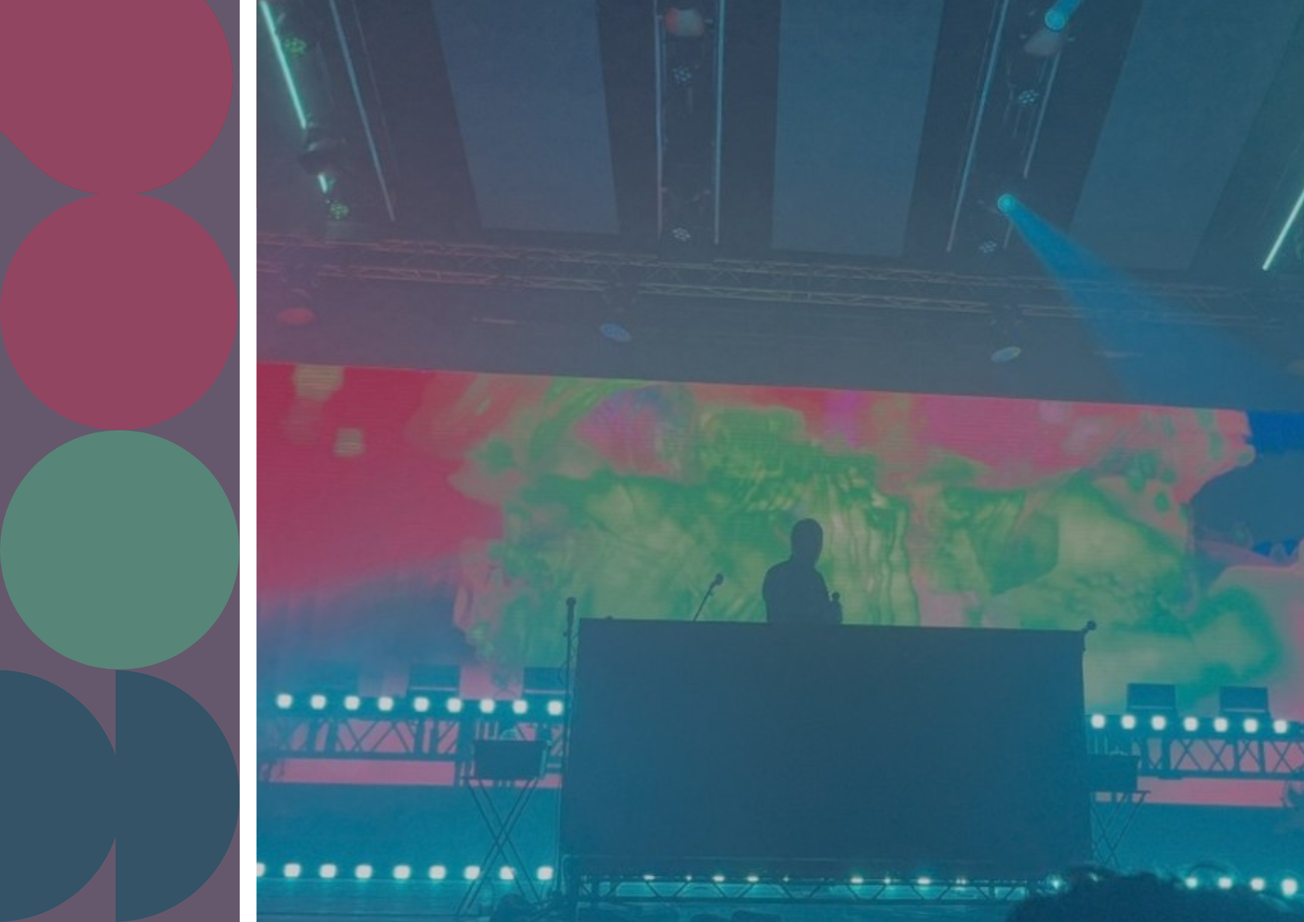UoB's thriving theatre scene would be nothing without its student playwrights. The third in Epigram Arts' playwright series sees what makes Clodagh Chapman tick, as she looks back on the writing of BUTTERFLY.
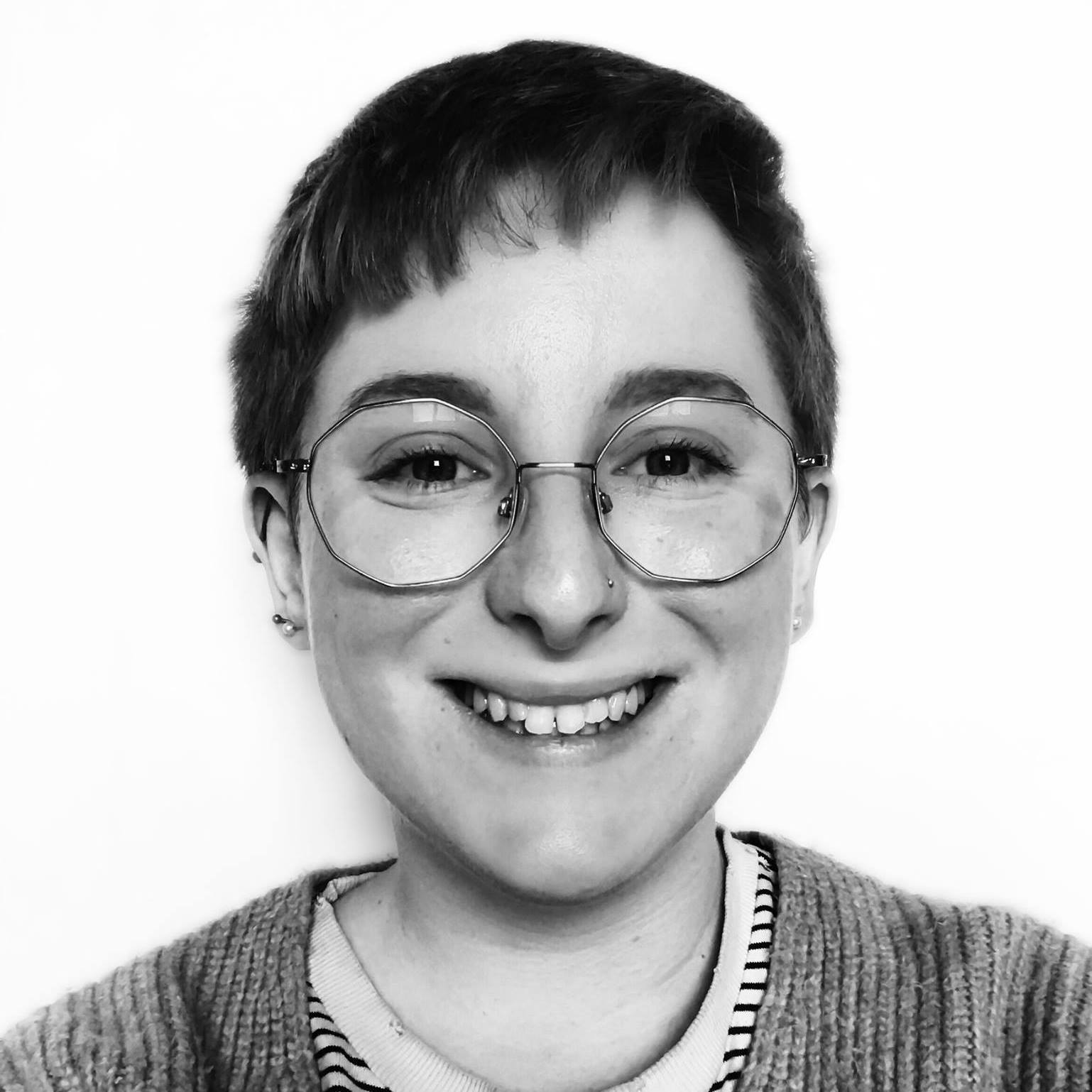
Meet Clodagh!
What inspires you OR How do/did you come up with new ideas/the idea?
BUTTERFLY was actually Sam Jones' idea, and I fell in love with the concept the second it was pitched to me! Then actually realising it - taking it from "let's do a play about undiscovered LGBT+ history", to "here is a coherent play with nine different narrative threads", was down to the work we did alongside our smashing research team. History is endlessly fascinating and there's so much material to play with and put on stage! As for BUTTERFLY, which was about eight true stories from LGBT+ history, the key inspiration (for me at least) was the historical documentation of what happened. It felt really important to be led by research, because when you're putting real stories on stage, there's a huge responsibility to tell those stories honestly and kindly.
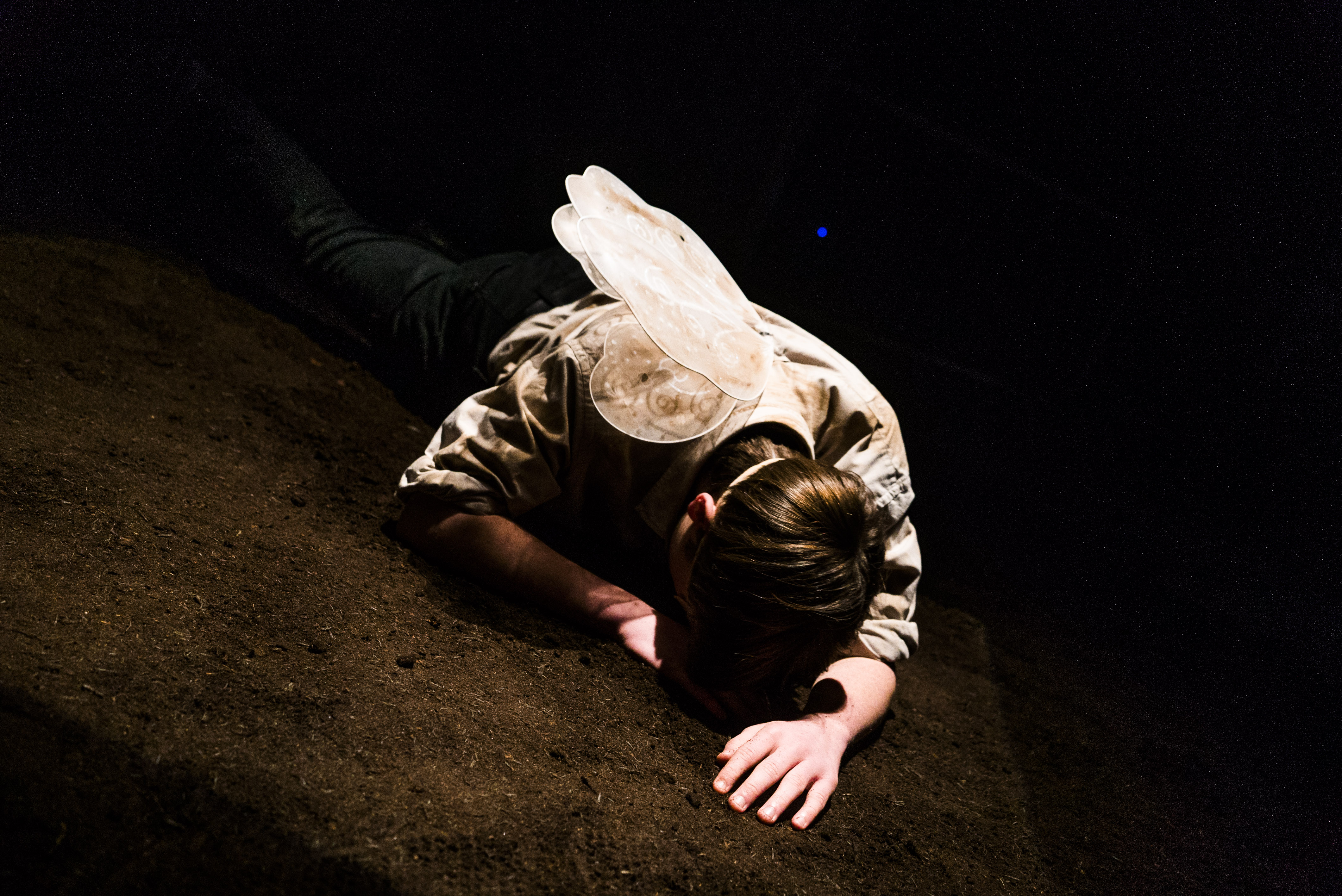
Credit: Butterfly / Harry Plowden
And another huge influence for me on BUTTERFLY was our incredible cast. Sam, our director, took them through a whole bunch of improvisations based on the archival material, to try and help find each character's voice, and I'd be sat in the corner, writing as much as possible of each scene live in rehearsal. Sam and I would then go on to refine what I had written, and brought into the rehearsal room the next day, to be chopped and changed in response to new discoveries we made. So it was a real collaborative process!
After seeing BUTTERFLY on stage for the first time, Sam and I both exhaled for the first time in about a week!
Did you write it all in a short burst or was it a slow grow?
BUTTERFLY is a full-length play which took four weeks from inception to performance, the first of those four weeks being dedicated to research - so the process of writing it was absolutely manic. But I think the fact that the writing (and everything else!) had to be so condensed was of benefit to the production, because there could be no "oh I'll write that tomorrow"; everything had to be done as quickly as possible, which was quite liberating in a way! It gave me permission as a writer to just sit down and bash out a scene, even if I knew it wasn't quite there - which I think is so much more productive than getting caught up in semantics.
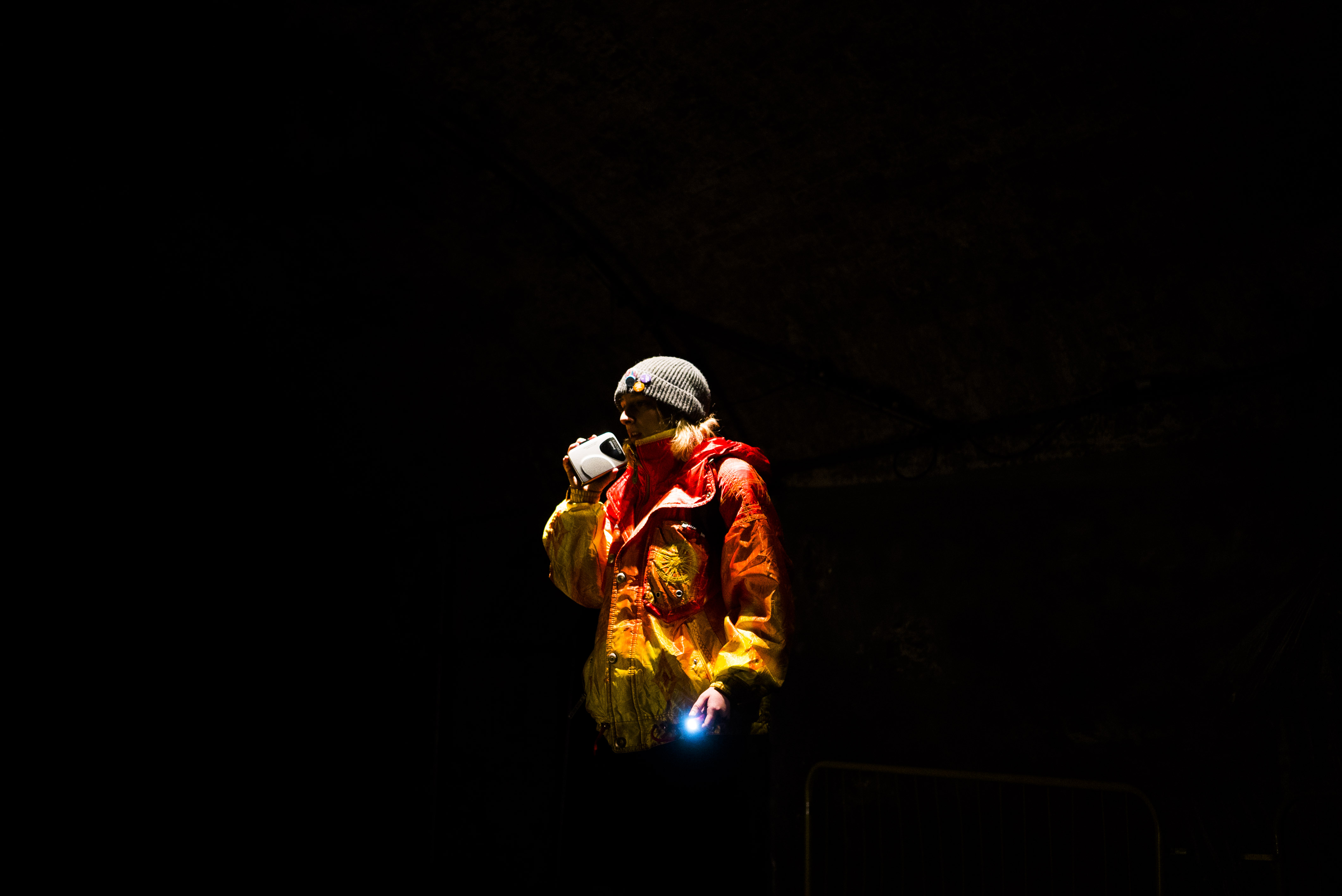
Credit: Butterfly / Harry Plowden
Have you ever had an idea that you later realised didn’t work? What happened?
So many! With devised work, there has to be a constant stream of creation and a constant sharing of ideas. There were so many different ideas thrown around in the BUTTERFLY rehearsal room which didn't make it to the final production, and there were tweaks being made to the script right up until closing night. Both of those things were really necessary parts of the creative process! And it's a real testament to Sam and the cast that the rehearsal room was such a safe space, where ideas were allowed to flop and where that was seen as a positive thing.
Did you ever hit a writers' block?
Amazingly, on BUTTERFLY I only had a couple of instances of writer's block. I think that was down to both the overriding time pressure, and the fact that if I ever felt myself beginning to get stuck, I could turn to Sam and shoot ideas around for a couple of minutes. But for sure, there were some moments where I was staring at an empty screen without anything to say. I think that’s pretty universal.
I've loved every second of it. And that's down to the incredible creative team who have been endlessly supportive and positive.
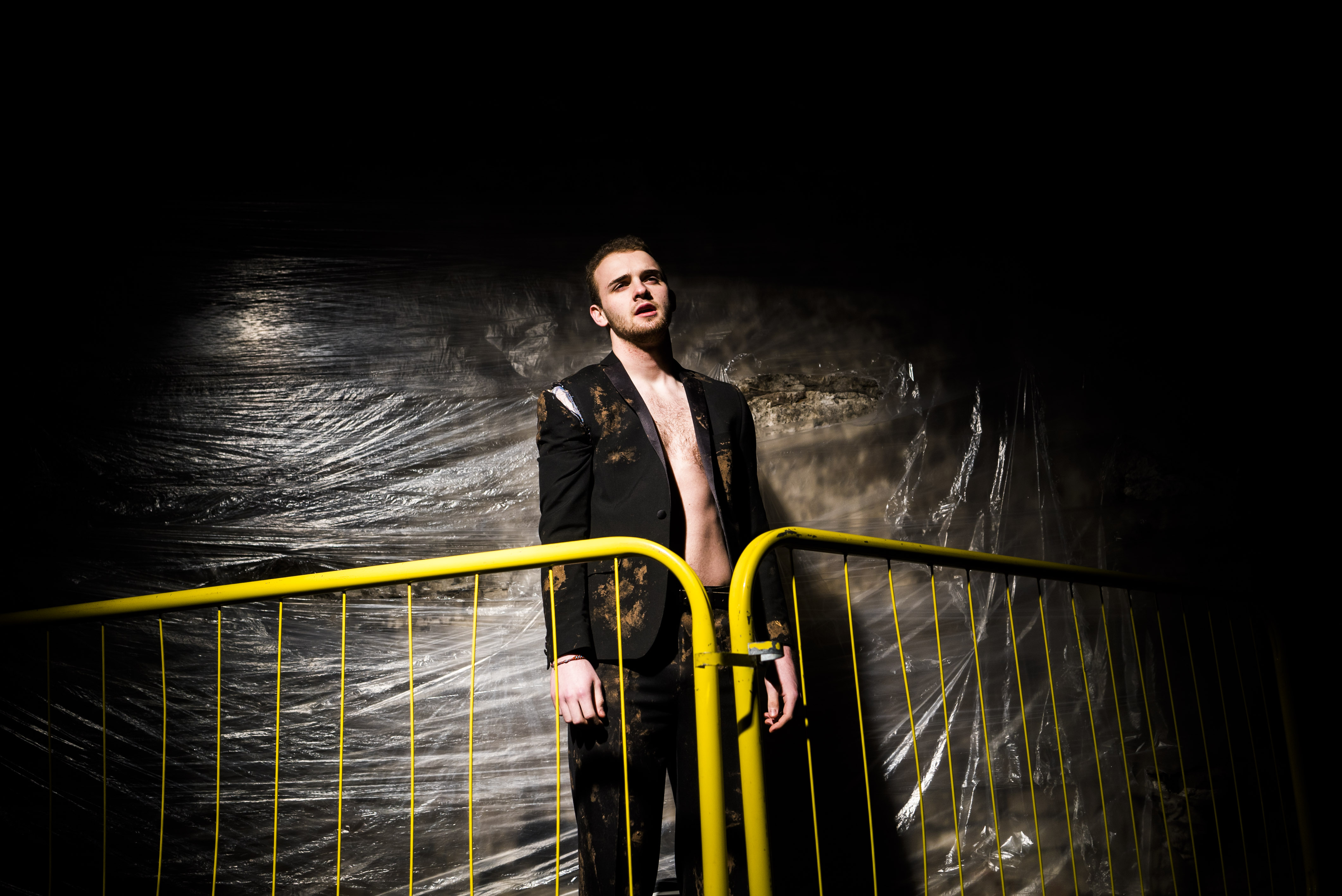
Credit: Butterfly / Harry Plowden
What was it like seeing your work on the stage for the first time? Was it as you imagined - how yes/no?
BUTTERFLY wasn't the first play I've ever written, so I have seen my work on stage before! But in the context of seeing BUTTERFLY on stage for the first time, since we both had so much creative input into the process, there wasn't that moment of "oh wow, that's a creative choice I wouldn't have thought of". But after seeing BUTTERFLY on stage for the first time, Sam and I both exhaled for the first time in about a week! Even though we each had about fifty rewrites we wanted to make, it was really reassuring to see the work onstage and to know that we had a play.
Do you only write plays or other forms of writing too? If you do, do you feel like that affects your style?
I occasionally write poetry too, and I dabble in journalism, but I feel like those three voices - play, poem, article - are very separate in my head. Especially since writing for the stage is so much about character, I would only really draw on a more poetic or journalistic voice if it made sense in that moment for that person.
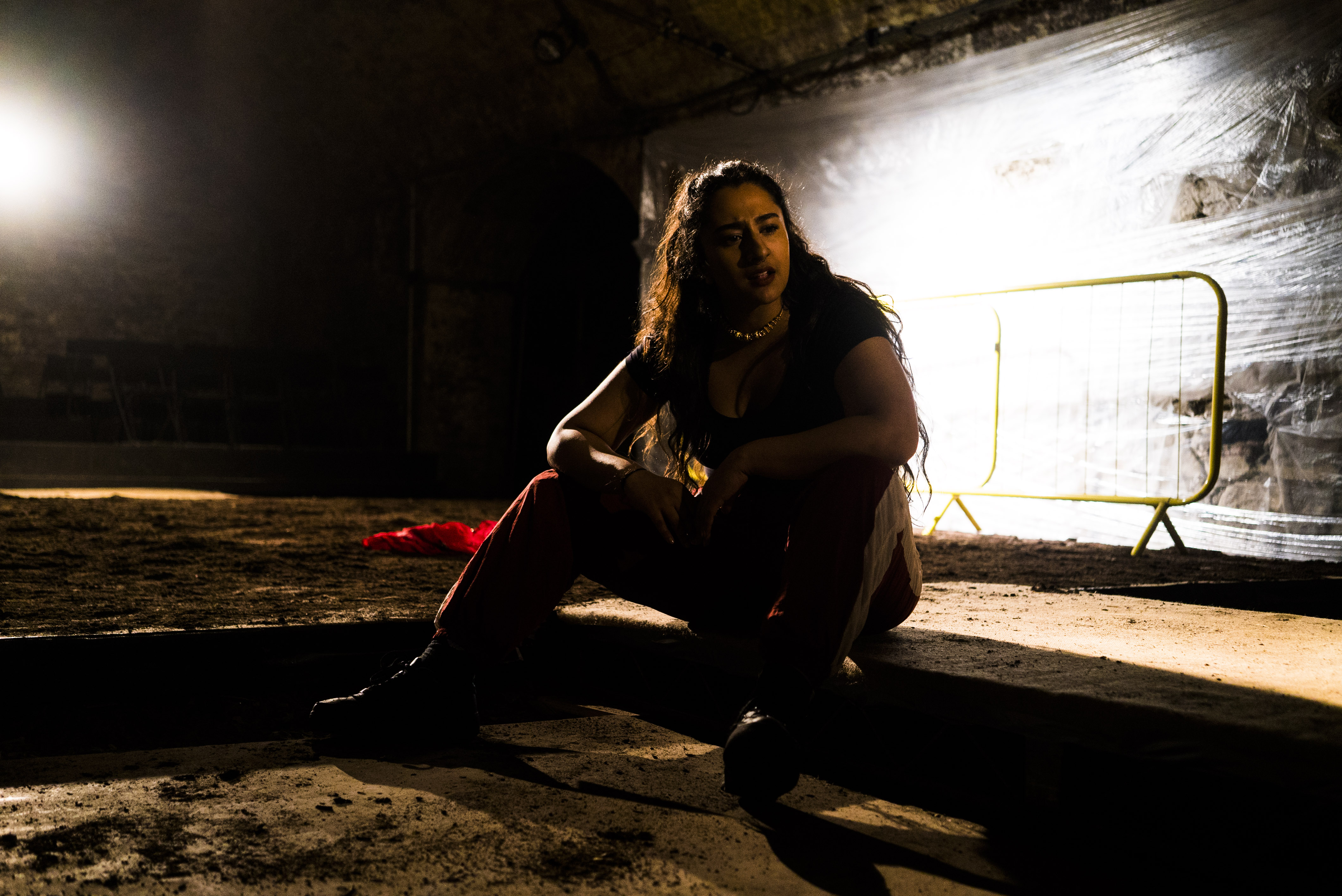
Credit: Butterfly / Harry Plowden
Is there anything else you'd like to tell us about the experience?
BUTTERFLY was an insane process, but I've loved every second of it. And that's down to the incredible creative team who have been endlessly supportive and positive and kind (and always on hand with snacks and coffee!).
Look out for the fourth and final installment in our series 'Meet the playwright' with Sam Jones.
Featured image credit: Canva / Gabi Spiro
What are your thoughts on student playwrights? Let us know in the comments below or on social media.

